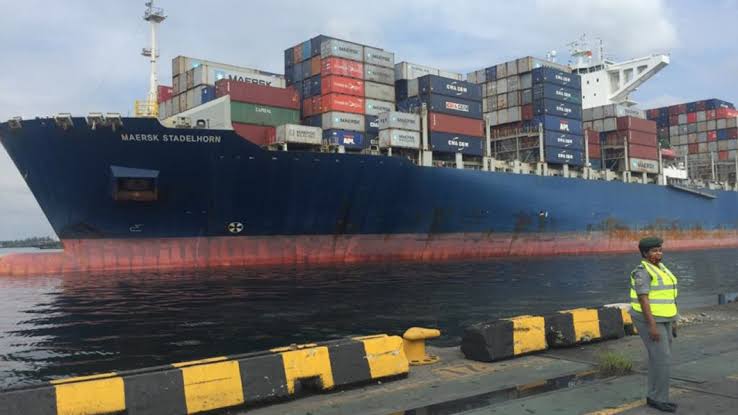
The Nigeria Ship Registry has been grappling with stagnation and underperformance for the last four years, under the watchful eyes of the Nigerian Maritime Administration and Safety Agency (NIMASA). Investigations by Shipping Position Daily have revealed.
This revelation comes even as stakeholders in Nigeria’s maritime sector strongly criticized NIMASA for its inability to breathe new life into the registry.
The Nigeria Ship Registry plays a critical role in ensuring safety, security, and environmental protection in the nation’s maritime space. It’s also a cornerstone for bolstering Nigeria’s reputation in the global maritime industry. Yet, recent assessments have exposed a disheartening trend; a lack of substantial progress in enhancing the registry’s efficiency and relevance.
Checks by our correspondent identified some key obstacles to the progress of the Registry which include outdated infrastructure inability of NIMASA to implement the Cabotage Act among others.
Our correspondent gathered that NIMASA has struggled to modernize and digitalize the ship registration process, resulting in inefficiencies, delays, and missed opportunities.
Although NIMASA outlines a seemingly straightforward three-step registration process on its website, ship owners have voiced concerns about the cumbersome paperwork and excessive human interference that plague these procedures, making the process far from being user-friendly.
The stakeholders lamented the bureaucratic processes within NIMASA that have dissuaded operators from registering their vessels under the Nigerian flag.
They blamed NIMASA for the cumbersome regulations, waivers granted to foreign ship owners, and persistent delays, all of which have contributed to the stalling of the Nigeria Ship Registry.
In a revealing conversation with our correspondent, Otunba Sola Olatunji, a ship owner and a member of the Nigerian Ship Owners Association (NISA), highlighted the pressing issues plaguing the domestic shipping industry.
Olatunji stated that: “The shipping industry in Nigeria is being controlled by foreign ship owners. So the market is dominated by foreign ship owners. Therefore, they have all the way with that. So our flag, what are we doing with our registry when we don’t even have new ships; do you register a ship when you don’t even have any?”
Olatunji also pointed to the ineffective implementation of the Cabotage Act, emphasizing that government support is essential to revive the industry and, by extension, the Nigeria Ship Registry.
He said, to attract international shipping business, Nigeria must align its Ship Registry with international standards and conventions.
He however said NIMASA faces difficulties in ensuring compliance, affecting Nigeria’s standing in the global shipping community.
According to him, “ the Nigeria ship registry is nothing to talk about, indigenous shipping has nearly disappeared in the last 16 to 20 years. The Nigerian shipping industry is controlled by foreign ship owners, dominating the market. Therefore, they hold all the power. Our ship registry has very few new ships.
Institutions haven’t taken steps to revitalize the industry. The registry is almost non-existent. The government must make a deliberate effort to address this industry challenge. They introduced the Cabotage law in 2003, which would have empowered the indigenous shipping industry and promoted the national flag we discussed. The key is implementing this l law effectively. It would boost the shipping business and promote indigenous shipping, ultimately improving our ship registry. We need updated equipment for the registry. If you look at the last 10 years, there have been almost no new vessel purchases. The 2003 Cabotage law has remained ineffective because NIMASA hasn’t ensured total compliance.
“Many nations use protectionism to safeguard their indigenous businesses. For instance, the Jones Act in America protects indigenous shipowners. Similar practices exist in Singapore, Malaysia, and Greece, where institutions acquire ships. Acquiring a ship is a capital-intensive process, quite different from Nigeria.
“In Nigeria, vessels are purchased with short-term funding, and there’s often a lack of cargo. NMPC and LNG deal with foreign ship owners, even for domestic cargo. We have a market, but local ship owners struggle. The government claims to have improved Cabotage, but the reality doesn’t match their words. Foreign ships are allowed in through waivers, pushing local ship owners out. They bring mother vessels along with daughter vessels. If you want to address this issue, a complete restructuring of NNPC is necessary, not just window dressing. It’s NNPC Limited, not a mistake. NNPC’s leadership needs serious changes” he lamented.
Speaking also, a ship owner and member of Ship Owners Association of Nigeria, but who pleaded anonymity also raised transparency issues within NIMASA. He pointed out that the lack of clear reporting on the ship registry’s performance and progress makes it difficult for stakeholders to assess the agency’s effectiveness in this area.
In addition, he stated that promoting the Nigeria Ship Registry on a global scale is essential for attracting vessel owners. He alleged that NIMASA’s efforts in this regard have fallen short, leading to missed opportunities.
Shipping Position Daily also recalls that in a recent interview with journalists in Lagos, Mr Abdul-Kadir K. Ahmed, the managing director of NLNG Ship Management Ltd (NSML), shed light on why none of the company’s ships currently fly a Nigerian flag. He explained that while the shipping company values Nigerian seafaring, complexities and international regulations concerning ship registration pose an obstacle to nationalism.
However, Ahmed reassured that the hope of registering NLNG Ship Management Ltd vessels in Nigeria was not lost, and the firm is collaborating with the Nigerian Maritime Administration and Safety Agency to achieve this goal.















